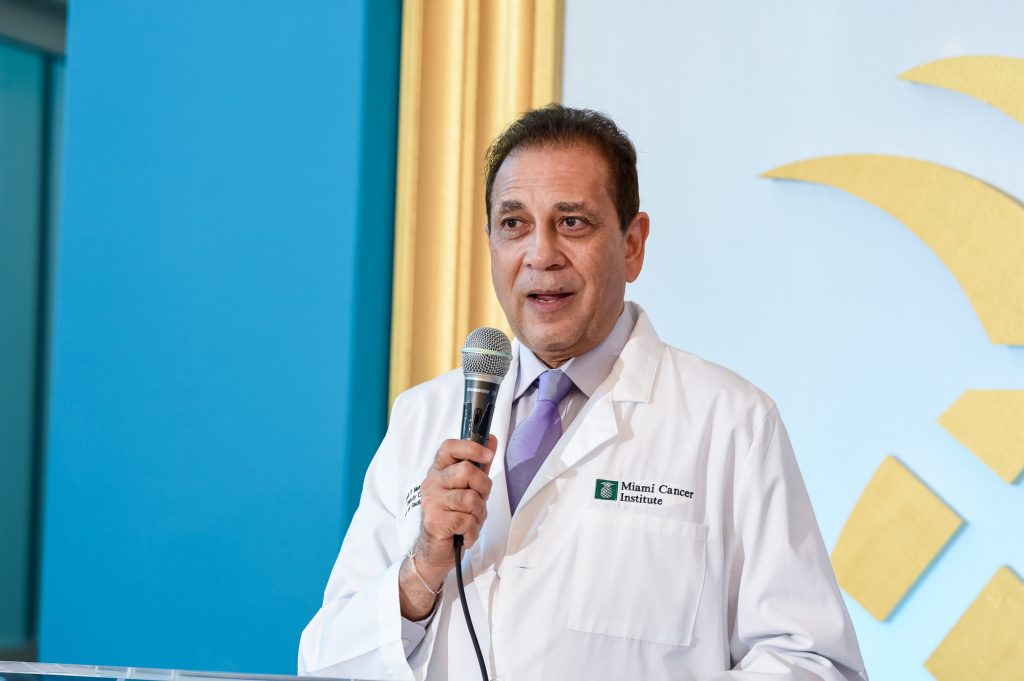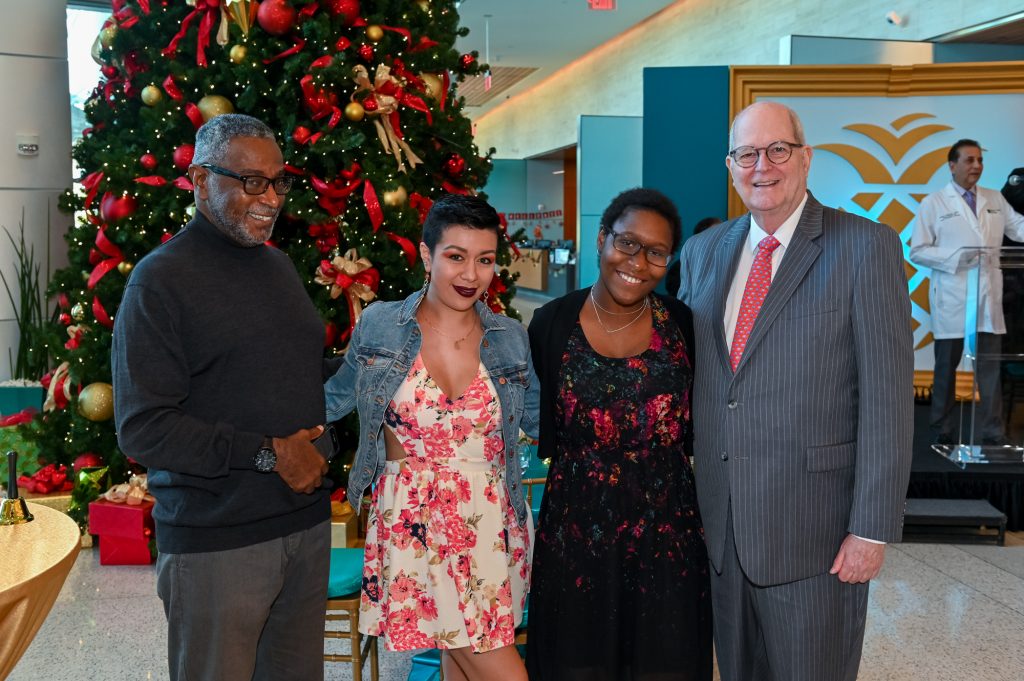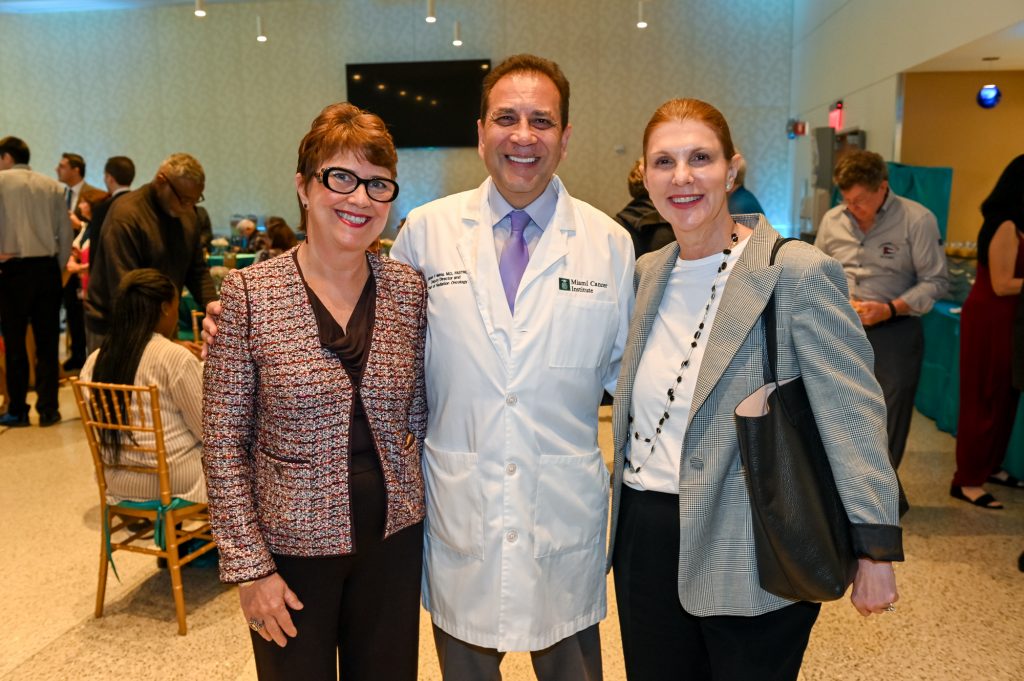April 3, 2020 by John Fernandez
Miami Cancer Institute Celebrates Proton Therapy Milestone

On Saturday, December 7th, more than 300 people gathered at Miami Cancer Institute to mark a major milestone for the world-renowned cancer center, as its proton therapy program recently completed treating its 500th patient.
(Watch now: The Baptist Health News Team speaks with Minesh Mehta, M.D., Deputy Director and Chief of Radiation Oncology at Miami Cancer Institute, about the 500th Patient Celebration for the Institute’s Proton Therapy Program. Video by George Carvalho.)
Joined by their families and physicians, patients past and present heard heart-felt testimonials from several cancer survivors who have benefited from proton therapy since it was introduced at Miami Cancer Institute two years ago. They also heard from Minesh Mehta, M.D., deputy director and chief of radiation oncology at Miami Cancer Institute, which is part of Baptist Health South Florida.

“On November 27, 2017, we treated our very first patient with proton therapy in this, the first proton therapy center in South Florida,” said Dr. Mehta, who has been with Miami Cancer Institute since its founding in 2016. “Just two years later, we’ve crossed the threshold of 500 patients, and that’s what we’re here to celebrate.”
Olga Alarcon Cruz, 31, the mother of two children, ages five and two, holds the distinction of being Miami Cancer Institute’s 500th proton therapy patient. She came to the Institute last year after being diagnosed with cancer in her right breast. “Here is the best cancer treatment in the world,” Ms. Alarcon Cruz told guests. “The people here are amazing and I just want to say, ‘Thank you!’”
Dr. Mehta said that since it opened its doors, Miami Cancer Institute has cared for a large number of patients whose treatments are very complicated. With the addition of the proton therapy program in 2017, the Institute became the only cancer center in the world with every radiation therapy available under one roof.
“The number 500, in and of itself, doesn’t really mean much,” Dr. Mehta noted. “It does, however, reflect the fact that there is an extremely qualified team here that makes it possible to take care of such a large number of patients in such an effective manner.”

Hundreds of cancer survivors, including Reverend Isaiah Alfred Bazile, Olga Alarcon Cruz, Brianya Evans and Richard Cole, gathered with their families and physicians to celebrate a major milestone for Miami Cancer Institute’s Proton Therapy Program
Breast cancer patients such as Olga often require radiation not just to the breast but also to lymph nodes that surround the breast. Conventional radiation therapies can damage surrounding tissues and organs – including the heart, if it’s the left breast being treated. Proton therapy, however, allows doctors to deliver extremely precise doses to the tumor itself without damaging other healthy tissues and organs.
“Because proton therapy allows us to target tumors so precisely, and spare the healthy tissue surrounding the tumor, it has become one of our most effective weapons against cancer,” Dr. Mehta said. “Here at Miami Cancer Institute, we use proton therapy to treat many types of cancer, including lung cancer, prostate cancer, breast cancer, cancer of the esophagus, liver cancer, cancers of bone and skin, brain tumors, skull base tumors, sarcomas, lymphomas…the list goes on and on.”

Proton therapy is also useful for treating tumors where large volumes of tissue must be radiated, he said, as well as tumors that have previously been treated with radiation and have subsequently reoccurred and need more radiation.
Pediatric cancers are also a prime target for proton therapy. According to Dr. Mehta, children who receive radiation therapy experience significant, lifelong effects from conventional radiation. Therefore, reducing exposure of normal tissues to radiation is especially important when treating children, he says, and this is one of the major benefits of proton therapy.
Miami Cancer Institute was founded with the vision that patients from South Florida would not need to leave the area to seek advanced care anywhere else in the country. More than 90 percent of the Institute’s patients are from Florida, but Dr. Mehta says the Institute has treated a substantial number of patients from around the country and across the globe.
Dr. Mehta is excited about new therapies and technologies that will undoubtedly help Miami Cancer Institute save even more lives. But for this particular day, he was content to step back and take measure of just how far they’ve come in the fight against cancer. “Saturday was a very emotional day for everyone,” Dr. Mehta said later. “There were lots of hugs and some tears of joy, there was celebration and camaraderie, and there also was the recognition that everyone there had become a family of sorts. Seeing that is so rewarding for me and my colleagues here at Miami Cancer Institute. It energizes all of us to move forward with even greater focus and determination.”

top stories












There are no comments